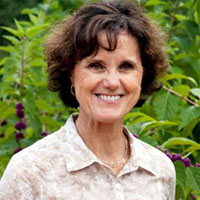GO NAP SACC, initiative to improve children’s health habits, to be piloted in 5 states
September 30, 2015
Go NAP SACC is an online tool that helps child-care programs in North Carolina foster healthy eating and physical activity habits in young children. The University of North Carolina at Chapel Hill’s Center for Health Promotion and Disease Prevention (HPDP), which administers the program, has selected to pilot it over the next six months in five additional states – Louisiana, Maine, Massachusetts, Oklahoma and Virginia.
For many young children, child-care programs become a “home away from home.” In partnership with families, these programs are called upon to help children develop good nutrition and physical activity habits that can serve them throughout their lives.
Serving healthful foods and making mealtime enjoyable help children learn to appreciate these foods and request them more often. Time to play, both indoors and out, stimulates brain development and learning and allows children to release energy.
Go NAP SACC guides child-care programs in setting goals to improve menus and meal-time environments, increase opportunities for enriching active play, and institute other healthful changes. Technical assistance professionals in the selected states will work with program directors to help them reach goals.
“We are very pleased to be working with these five states and the Centers for Disease Control and Prevention to pilot-test Go NAP SACC,” said Dianne Ward, EdD, professor of nutrition at the Gillings School. “Each state is using different avenues to implement Go NAP SACC and building new partnerships to support the health of young children. We’re already learning so much from our state partners. We look forward to better understanding the benefits that Go NAP SACC can bring to individual child-care programs and to broader, statewide health promotion efforts.”
The Go NAP SACC tool is the online version of NAP SACC (Nutrition and Physical Activity Self-Assessment for Child Care), an evidence-based program developed in 2002 by Ward and a team of child obesity researchers at UNC-Chapel Hill. It has been used successfully by child-care programs in dozens of states over the past decade.
This pilot project is made possible with support from the Centers for Disease Control and Prevention and The Blue Cross and Blue Shield of North Carolina Foundation.

